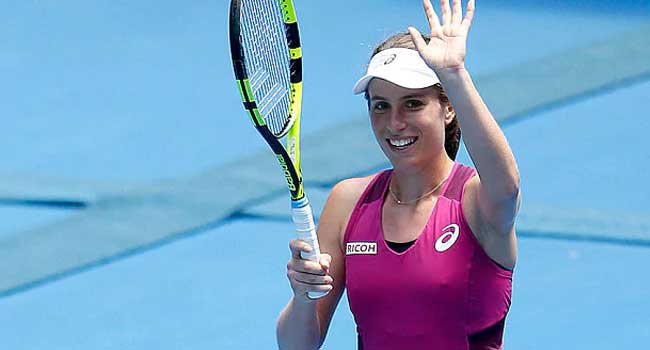
Latvia announced Tuesday it was revoking the licence for exiled Russian independent channel Dozhd (Rain) for multiple violations that included showing the Crimea peninsula annexed from Ukraine as part of Russia.
The channel, which moved to Latvia after Russian authorities blocked its broadcasts for critical coverage of the war in Ukraine, dismissed the accusations as “unfair and absurd”, saying that it would remain on YouTube.
“TV Rain will stop broadcasting on December 8,” Ivars Abolins, head of the Latvian National Electronic Mass Media Council said on Twitter.
“The laws of Latvia must be respected by everyone,” Abolins added.
The network, which was founded in 2010 as the main opposition channel in Russia, is also accused of supporting Russian soldiers, which the channel denies, and failing to ensure Latvian language translation, LETA news agency reported.
“The TV channel will stop broadcasting on cable but will remain on YouTube,” Rain said on Twitter in response.
“We continue to work and believe all accusations against us to be unfair and absurd.”
The regulator’s decision can be appealed.
Since Russia invaded Ukraine, fear of Moscow aggression has grown in Latvia, a neighbouring Baltic country that spent decades as part of the Soviet Union and where a quarter of the population of two million are Russian speakers.
Moscow commented on the move in relatively neutral tones.
“Some always think that there is a better place than home, that there is always more freedom than at home. This is one of the clearest examples that shows that these are wrong illusions,” Kremlin spokesman Dmitry Peskov told reporters.
– ‘Repeated violations’ –
The Latvian government had offered refuge to TV Rain and by mid-July, their shows were back up and running, having been blocked in early March in Russia.
The channel’s declared mission was to provide independent information and counter Kremlin propaganda.
Several other newsrooms have also found refuge in the Latvian capital, including Novaya Gazeta Europe and Deutsche Welle’s Moscow branch.
The city has also hosted independent news website Meduza since 2014.
But the Latvian regulator had warned last week that the channel was at risk of losing its licence due to “repeated violations”.
Last Friday, TV Rain was fined 10,000 euros ($10,500) for broadcasting a map which showed the Crimean peninsula, annexed from Ukraine, as part of Russia, the National Electronic Media Council said.
The regulator also launched a probe into TV Rain’s call for viewers to provide “equipment to those Russians who are on the frontline”, expressing “hope that we could help with equipment and basic amenities on the front”.
Latvia’s State Security Service said it was investigating the channel.
“Taking into account crimes committed by Russian occupying forces against Ukraine and its people, any material or financial support to the aggressor country is illegal and may lead to criminal liability for financing war and terrorism,” it said.
TV Rain editor in chief Tikhon Dzyadko said at the time that the channel “does not engage in providing any help to the Russian army” and that it was collecting information about Russian war crimes.
Latvian law states that TV channels can lose their licence if they break the law three times within a year.


